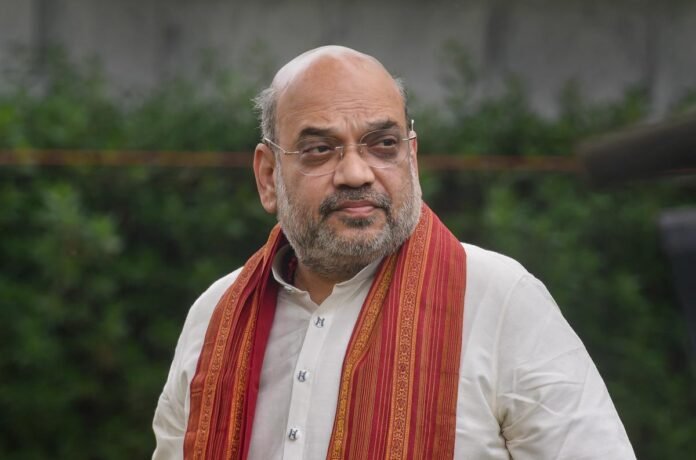Union Home Minister and senior BJP leader Amit Shah recently found himself at the center of a significant electoral event when the Election Commission (EC) conducted an inspection of his helicopter during a campaign visit to Maharashtra. The incident, though routine as per EC’s guidelines, has sparked widespread discussions about electoral integrity, the role of democratic institutions, and the political narratives surrounding such actions. Shah’s measured response underscored his party’s commitment to the principles of free and fair elections, while also highlighting the delicate balance between transparency and political scrutiny in Indian democracy.
The inspection took place as Shah campaigned in Maharashtra, a key battleground state gearing up for its upcoming elections. As per standard procedure, EC officials inspected the helicopter to ensure compliance with election laws designed to prevent misuse of resources and curb electoral malpractice. Such inspections, often targeting cash, contraband, or materials meant to influence voters, are a critical component of ensuring fairness in elections. However, when a high-profile leader like Amit Shah is involved, these actions inevitably draw heightened attention.
In his public response, Shah welcomed the EC’s inspection, emphasizing that the Bharatiya Janata Party (BJP) respects and supports democratic institutions and their efforts to uphold electoral integrity. “The BJP has always believed in the sanctity of democratic institutions. I welcome the Election Commission’s action and see it as part of their duty to ensure free and fair polls,” Shah stated during a rally. His remarks reflected a calm and mature approach, presenting the BJP as a party with nothing to hide. This statement not only quelled potential controversies but also reinforced the image of a party that respects the rule of law and equality in democratic processes.
The political reactions to the incident, however, were varied. While the BJP lauded Shah’s composed response, framing it as evidence of the party’s commitment to transparency, opposition parties seized the moment to critique the ruling party. Leaders from the Congress and Shiv Sena (UBT) argued that the inspection itself hinted at growing mistrust in the BJP’s adherence to electoral fairness. “The fact that the EC had to inspect the Union Home Minister’s chopper shows the growing distrust in the system,” remarked a senior Congress leader. These statements underline the deeply polarized nature of Indian politics, where every action or decision becomes fodder for political narratives.
The Election Commission’s role in this incident also came under scrutiny. On one hand, the inspection showcased the EC’s vigilance and impartiality, sending a strong message that no individual, regardless of position or power, is above the law. This act bolstered the institution’s credibility, especially in an environment where its neutrality has often been questioned. On the other hand, critics argue that such high-profile inspections should be managed carefully to avoid giving the impression of selective targeting, which could inadvertently politicize the EC’s actions.
This incident also brings to light the broader implications for Maharashtra’s political landscape. The state is witnessing a highly competitive election season, with alliances shifting and parties vying for dominance. The BJP, keen on retaining its influence in Maharashtra, faces stiff opposition from a coalition of the Shiv Sena (UBT), NCP, and Congress. Against this backdrop, Shah’s campaign focused on development narratives and attacking the opposition’s governance record. By framing the EC’s inspection as a testament to the BJP’s belief in transparency, Shah attempted to turn a potentially contentious moment into a strategic advantage.
The inspection of Amit Shah’s helicopter in Maharashtra serves as a microcosm of the challenges facing Indian democracy. It highlights the importance of institutions like the Election Commission in safeguarding electoral fairness while also illustrating the political dynamics that shape their actions. For Shah and the BJP, the incident was an opportunity to reaffirm their faith in democratic processes and project an image of integrity. For the opposition, it became a platform to question the ruling party’s track record on transparency.
As Maharashtra moves closer to its elections, the incident remains a reminder of the complexities inherent in a democracy as vast and vibrant as India’s. It underscores the need for impartial oversight and responsible leadership in ensuring that the sanctity of elections is upheld. Whether this episode will influence voter perceptions remains uncertain, but it undoubtedly serves as a testament to the robustness of India’s electoral system and the critical role of democratic institutions in maintaining its integrity.

